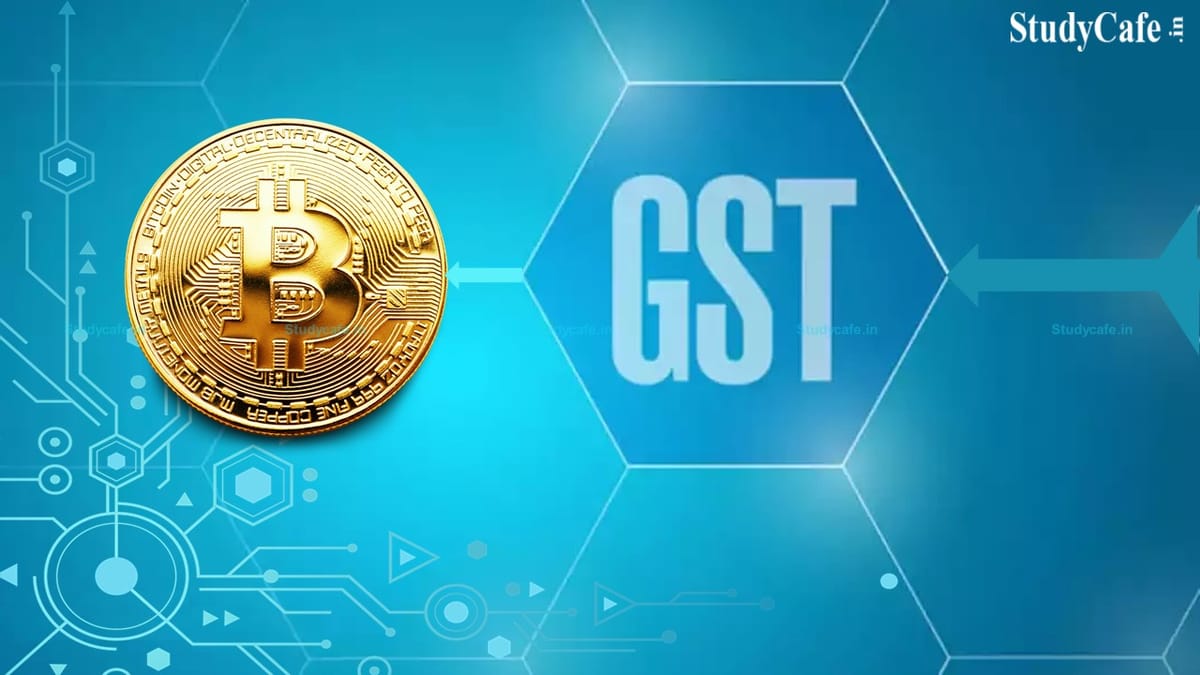Reetu | Feb 14, 2022 |

Prepare to Pay GST on Cryptocurrency Trade as the Government Considering Proposal in GST Council Meeting
The Government is preparing to legally incorporate crypto assets into the goods and services tax (GST) structure by levying an indirect tax on their trade. The Goods and Services Tax (GST) Council will soon take up the subject of levying an indirect tax on crypto assets, according to revenue secretary Tarun Bajaj in an exclusive interview with Outlook Business. “I spoke with the chairman of the Central Board of Indirect Taxes and Customs (CBIC).” “We’re considering [the possibility],” he stated.
Various government departments and the Reserve Bank of India (RBI) are hurrying to develop laws to regulate the crypto industry, the details of which have begun to emerge following finance minister Nirmala Sitharaman’s announcement in the Union budget regarding taxing crypto assets. For quite some time, it appears that government departments have been laying the groundwork for taxing the sector.
According to Bajaj, the GST is already applicable if an investor hires an adviser to make investment decisions and pays a fee to the advice. “However, in terms of other parts of GST taxation, what has happened is that this is also new to us.” We’re also learning about how the trade works. There is platform-to-platform trading, as well as trading through exchanges. “We will provide comprehensive clarification on the GST front in the next three to four months,” he said.
“I intend to provide that any revenue from the transfer of any virtual digital asset would be taxed at the rate of 30%,” Sitharaman stated in her budget address. Except for the cost of purchase, no deduction in respect of any expenditure or allowance shall be allowed in computing such income.” Aside from this plan, she stated that a 1% tax will be deducted at the source on every payment made in relation to the transfer of virtual digital assets. It has also been recommended that the recipients of virtual digital assets be taxed when they get them.
“As of present, any services supplied as part of these transactions are taxed under the GST, just as brokerage services for shares are.” We’ll have to wait and see how we define cryptocurrency in our guidelines, and then decide whether or not to tax it. “We’ll think about it internally,” Bajaj added.
The government opted to implement a direct tax in the budget to prevent the sector from evading taxation. However, it is now driving efforts to develop methods for levying an indirect tax on the entire economy. Putting it under the indirect tax structure will require some negotiating, but the administration is eager to begin the taxation process as soon as possible.
The GST law is the initial step towards levying the GST on any goods. The legal committee refers the idea to the GST Council, which makes the decision on the tax rate following deliberation. “Because it will go through so many stages, there will be adequate clarity.” I’ve spoken with the CBIC, which is working on [the idea]. Perhaps there will be clarity on this in the [GST Council] sessions following the next [one]. However, it is a time-consuming procedure, and the goal is to collect the tax until everything is clear,” Bajaj explained.
While the government appears to be set on putting the crypto sector under both direct and indirect tax nets, the Central Bank is concerned about the macroeconomic impact it could have on India. Following the Monetary Policy Committee meeting on February 10, RBI governor Shaktikanta Das issued a strong caution against investing in cryptocurrencies, claiming that they lacked the fundamental value “of even a tulip,” referring to a 17th-century speculative bubble that seized the Netherlands. “Private cryptocurrency poses a significant danger to macroeconomic and financial stability… “Investors should keep in mind that they are investing at their own risk,” Das said following the meeting at a news conference.
In case of any Doubt regarding Membership you can mail us at [email protected]
Join Studycafe's WhatsApp Group or Telegram Channel for Latest Updates on Government Job, Sarkari Naukri, Private Jobs, Income Tax, GST, Companies Act, Judgements and CA, CS, ICWA, and MUCH MORE!"